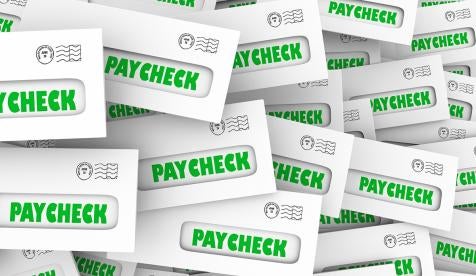States Covered: Maine, Massachusetts, New Hampshire, and Rhode Island
FEDERAL PROGRAMS
In response to the unprecedented disruption caused by the COVID-19 pandemic and public health efforts to fight the virus, federal and state legislators have created numerous stimulus and relief packages to stabilize the national economy and provide support to those affected. The most recent and largest of these packages was the Coronavirus Aid, Relief, and Economic Security Act (CARES Act), enacted on March 27, 2020.
For businesses, the CARES Act creates several programs directed at addressing liquidity needs stemming from losses suffered as a result of this pandemic. These programs include the expansion of existing loan programs under Sections 7(a) and 7(b) of the Small Business Act, and the appropriation of funds to the U.S. Treasury Federal Reserve Fund to afford additional access to corporate liquidity for businesses unable to avail themselves of SBA programs.
As of the date of this alert, federal business relief programs include:
-
SBA Economic Injury Disaster Loans (EIDL Program). Under the EIDL Program, an eligible small business located in a region designated by the SBA as a Disaster Area can apply for up to $2 million in Section 7(b) SBA Disaster Loans to alleviate economic injury caused by the disaster. These loans can have terms up to 30 years and provide for low interest rates at 3.75% per annum for small business and 2.75% per annum for nonprofits. By applying, you become eligible to receive an Emergency Economic Injury Grant. If you request the advance, you will receive an advance of $10,000 within three days of applying. The advance does not need to be repaid if you are turned down for the loan or decide not to accept the loan once approved.
-
Paycheck Protection Program (PPP). To encourage small businesses to avoid layoffs and furloughs and to rehire employees already laid off, most businesses with 500 or fewer employees including nonprofits, sole proprietorships, self-employed individuals and independent contractors, and certain businesses with more than 500 employees that meet SBA size standard determined for each industry, are eligible for forgivable loans up to $10 million to be used for payroll and certain other operating expenses, subject to certain limitations and restrictions. The loans will have a fixed interest rate of 0.50% per annum and a terms of 2 years.
In addition, SBA’s affiliation rules are waived for certain small businesses including those in the hospitality and food services industry and franchises with an SBA franchise identifier code. For businesses that retain employees and maintain payroll for an eight-week period following the receipt of the loan proceeds, up to the full amount of these loans is eligible for forgiveness. The SBA has cautioned that due to projected high participation rates, at least 75% of the forgiven amount must have been used for payroll costs. There is limited guidance about what teh details for obtaining forgiveness will be, but at this time it is anticipated to require borrowers provide evidence of uses of loan proceeds to its loan orginator. Businesses are eligible to submit applications under this program through June 30, 2020.
-
SBA Debt Relief Program. For businesses with existing SBA loans, including 7(a), 504, and microloans, and small businesses that take out new SBA loans under these programs within six months of the enactment date of the CARES Act, the SBA will cover all loan payments (principal, interest and associated fees) for six months, including principal, interest, and fees, beginning on the next payment due date. If current qualifying loans are in deferment the six months subsidy will start after the current deferment ends.
-
Relief for Larger Businesses. For larger businesses that do not qualify for assistance under the SBA-administered programs, Title IV of the CARES Act appropriated $500 billion to the Treasury’s Exchange Stabilization Fund to provide loans and guarantees to businesses within severely distressed sectors, including air carriers and businesses critical to maintaining national security, and to other eligible businesses, which are broadly defined to include U.S. businesses that have not otherwise received adequate economic relief under the CARES Act.
Co-Authored by Stephen J. MacGillivray, Scott E. Pueschel, Robert B. Ravenelle, and Andrea K. Suter.








 i
i


